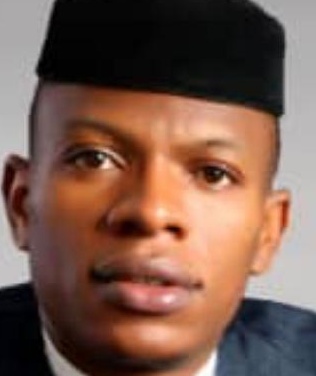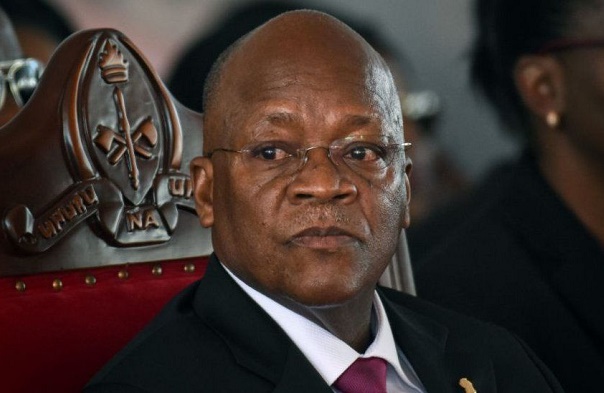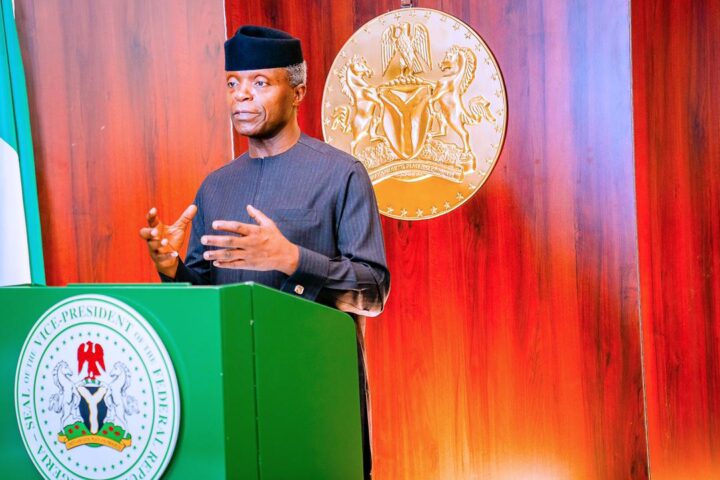Magufuli, Tanzania and the ‘politicisation of mortality’
After weeks of intense speculation about his health and whereabouts, Tanzanian President, John Pombe Joseph Magufuli was pronounced dead, last Wednesday, 17th Friday, 2021. In a brief televised address, then Vice President― Samia Suluhu Hassan, told the world, that the President had died of heart complications while being treated at a hospital in the port city of Dar es Salaam. His death, brings to an end, an era which observers of the East African nation, say was marked by repression and authoritarian tendencies.
But whilst the mystery of his prolonged absence might have been resolved per force, the actual cause of his death will remain a matter of controversy for a long time. A situation which in retrospect, could have been clearly avoided. Whilst official sources tout heart complications, so many questions however remain unanswered. For example, if the late President was battling a heart complication, why was it made a matter of state secret despite public knowledge that he had nursed for over a decade, chronic atrial fibrillation as the vice president confirmed last Wednesday? When widespread rumors that the late populist leader had contracted the Corona Virus (which could have aggravated his comorbidities), are put side by side with the conspiracy of silence that characterized his last days, then it becomes highly probable that the man, nicknamed Bulldozer might have died from the deadly virus.
Of course, his infamous cavalier disposition to the pandemic couldn’t have given him, and his handlers the opportunity to tell the world that the famous Covid-19 skeptic, was battling for his life, stricken by the same virus. Maguguli had played down the Covid-19 pandemic and literally failed to protect his country from the virus. He rallied against facemasks and social distancing, and promoted unproven remedies as cures, and was once quoted to have said that, “God had helped the country eliminate the virus”. As far back as April 2020, he had stopped health officials in his country from officially sharing the Covid-19 data with the World Health Organization (WHO); and as vaccine rollouts began worldwide, he refused to join the chase. Certainly, he couldn’t have, having famously declared that, “vaccines don’t work”, in a speech to a mask-less crowd in January.
Against this backdrop, therefore, one gets a sense of the reason behind the push back from senior Tanzanian officials who helped to perpetuate the secrecy and false narratives that characterized that prolonged absence which started on the 27th of February, when Magufuli was last seen in public.
Advertisement
But irrespective of the medical condition he battled, which has unfortunately taken his life, the question remains: why weren’t Tanzanians informed at least, that the first citizen was sick? Throughout the period of his controversial absence, the official response of Tanzanian officials was that the President was doing fine. In the thick of the controversy, the Prime Minister, Mr. Kassim Majaliwa was quoted as saying that the President “was busy at work, reviewing files”, and that the speculations concerning his medical condition were the product of “hateful” Tanzanians living abroad, in a disguised reference to Mr. Tundu Lissu, a leading opposition figure who had been in exile in Belgium, and who first hinted that the late President was battling Covid-19 in an undisclosed location in India.
Mr. Majaliwa’s rather upbeat, but highly perjurious testimony about the late President’s condition; at least from what we know now, leaves a sordid picture of ‘politicization of mortality’, in circumstances that compare almost perfectly to the events of Nigeria’s not-too-distant history. Here, we speak of the Umaru Musa Yar’Adua affair, whose protracted illness between November 23, 2009, when he was last seen in public, and the 5th of May, 2010 when he was said to have eventually given up the ghost, became an opportunity for a power-drunk cabal in the Presidency to string Nigerians along on the whereabouts and state of health of their President.
The politicisation of the medical condition of presidents and leaders generally, perhaps stems from the misconception that presidents are some kind of super-humans who are above the trappings of mortality. A misconception that is fueled by the paraphernalia of the high office they occupy and the powers they command. Because of this mostly willful misconception, it is almost taboo to officially acknowledge the medical infirmities of a sitting President. And examples of this abound.
Advertisement
When United States President Donald Trump, on Oct. 2, 2020, tweeted to the world that he and Melania Trump had contracted the virus, and would be going on isolation (despite being an avowed Covid-19 skeptic), it was unbeknownst to many that he was breaking from an old tradition where former occupants of the Oval Office kept their health issues totally private, no matter the amount of deception it required.
At a press briefing in 1893, President Grover Cleveland’s secretary of war was reported to have told inquiring journalists that their speculation about the President having undergone surgery was wrong. The nation was in a recession, and Cleveland feared that his economic plan would be doomed if the public knew that his doctor thought he could have cancer. Cleveland had surgery secretly on a yacht, the tumor was removed, but the nation continued spiraling into an economic depression. Again, During President William McKinley’s second term in office, which began in 1901, his health plummeted. He had eye trouble. He was bedridden with the flu. And he was near death from pneumonia. Yet his spokesman clamped down media speculation, telling journalists that reports of the president being ill were “foolish stories.”
For the entirety of his service to Franklin Delano Roosevelt, Press Secretary Stephen Early tried to hide the president’s paralysis caused by polio by having the press snap photos of the president in ways that hid his wheelchair. Even after FDR died, Early released a statement that “the president was given a thorough examination by seven or eight physicians” and “he was pronounced organically sound in every way” so as to sustain the false narrative even in death.
A similar pattern of secrecy and politicisation of the medical condition of presidents in the United States is seen in the presidencies of Dwight Eisenhower; Kennedy; Nixon etc. Elsewhere, whilst former president of Venezuela, Hugo Chavez battled cancer in neighboring Cuba, over a decade ago, it was kept from Venezuelans despite how popular Chavez was with the people. The recent events engulfing Magufuli and Tanzania therefore, present the latest instance of an awkward presidential tradition which political scientists and psychologists might want to unravel.
Advertisement
Back to Tanzania. Magufuli’s death, in spite of the mixed grill of emotions it has received from Tanzanians, being a leader who was loved, loathed, and feared at the same time, opens a new and historic political chapter for the East African Country. On the 19th of March, 2021 Vice President Samia Suluhu Hassan was sworn in as the 6th President of the country in a not-so-talked about tribute to the institutionalization of democratic structures in the country, contrary to the fears that it might snowball into a political crisis in the event of a vacuum on account of Magufuli’s death. According to the Tanzanian Constitution, Suluhu is expected to oversee the remainder of Magufuli’s 5-year tenure following a controversial re-election for a second term last October. She becomes the first female President of the East African Region and the 10th female President out of Africa.
Given the circumstances under which she’s coming to power, Suluhu’s job is expectedly cut out for her: reverse the cavalier and nonchalant Magufuli Covid-19 policies and effectively provide protection for Tanzanians by taking advantage of the ongoing vaccine rollouts. His predecessor had come under intense criticism for his repressive and authoritarian tendencies leading to the gagging of the media and civic spaces. One expects that she would take a different route by liberalizing democratic structures in the country, uniting it, and putting it in the way of progress. Providence has thrown her up in the most unusual of circumstances. She must make the best of it.
Raymond Nkannebe, a Legal Practitioner and Public Interest Analyst, writes from Lagos. You can follow him on Twitter @RayNkah
Advertisement







